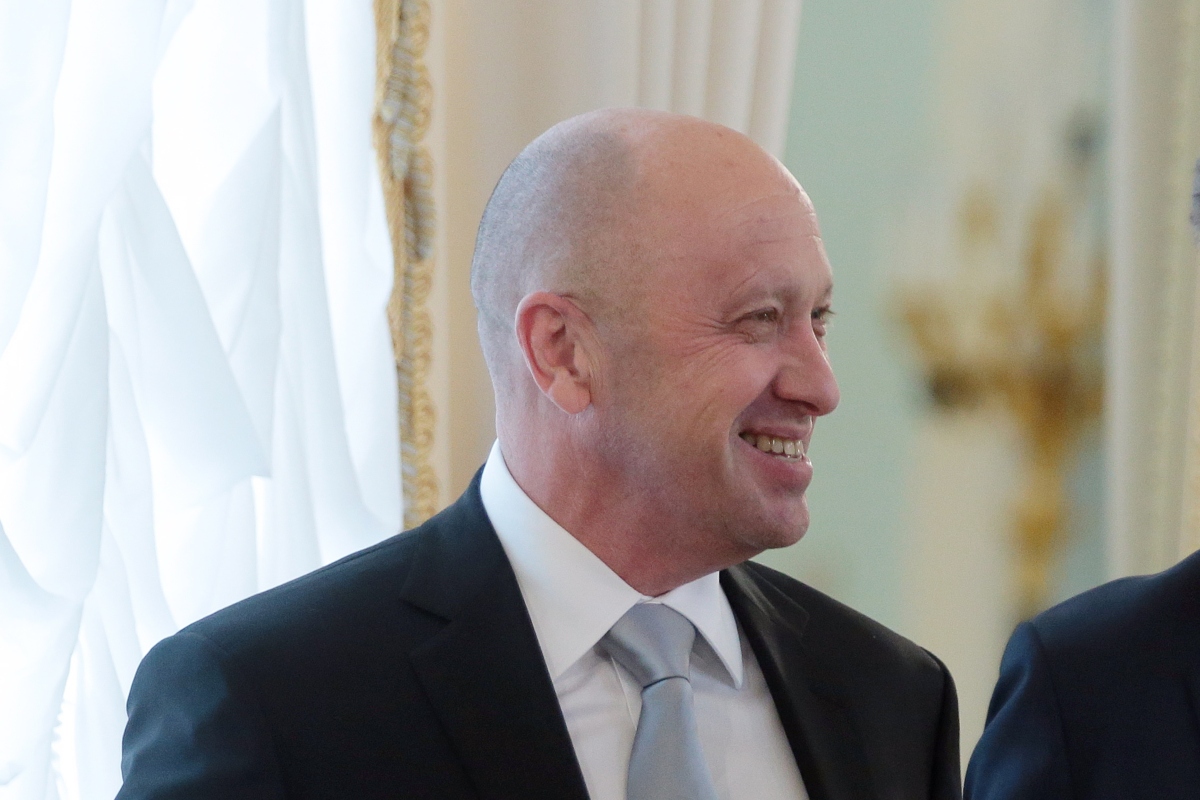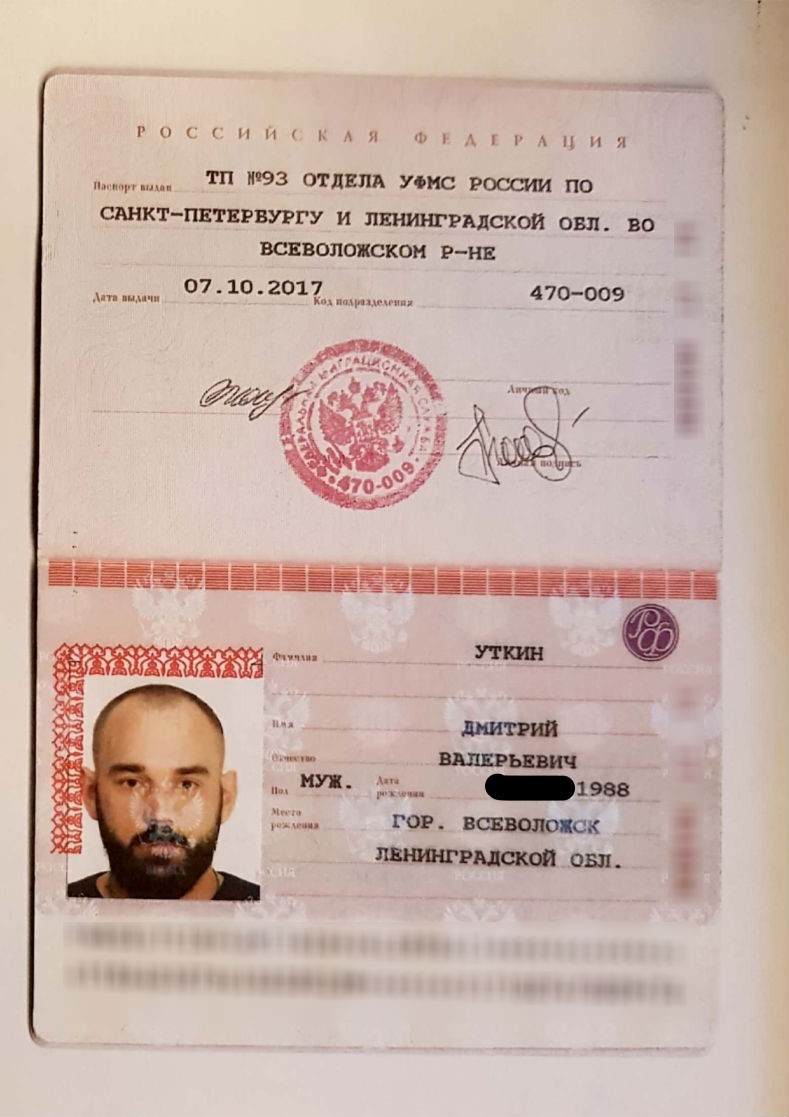
«How to tell a man on the street from a member of Wagner?». An interview with the alleged founder of a Russian private army
What follows is the complete transcript of a rare email interview with Evgeny Prigozhin, widely believed to be the founder of Wagner Group, a private military company representing Russian interests in Ukraine, Syria and across Africa.
The interview was conducted by Anton Baev, a reporter for The Bell, as a part of the investigation into the story of creation of Wagner. The full report will be published on Thursday, January 31.

Question: Since 2014, Russian and foreign media have tied your name to an organization known as PMC Wagner. You already denied having ties to this company in a conversation with RBC in 2017, nevertheless, please explain, are you familiar with the story of how this organization was founded? Why is your name mentioned in relation to the organization? Is it just a coincidence that the full namesake of the supposed head of the PMC, Dmitry Valerevich Utkin led led OOO Concord Management and Consulting?
Answer: I don’t have any relationship with PMC Wagner. Moreover, as my name is constantly mentioned in relation to this company, I can give the following commentary: in the Russian Federation, the idea of a private military company (PMC) doesn’t exist. The fact that my name is mentioned in relation to a PMC is a result of information which was first spread publicly by the Ukrainian security service (SBU and by Fontanka journalist Denis Korotkov who was working with them. Korotkov, according to the information available, was fired from Fontanka for publishing unconfirmed information. Journalists often write about the presence of a PMC in other countries. Tell your readers, how can one differentiate a man on the street from a PMC guy or a Wagnerite?
Regarding your inquiry about the director of OOO Concord Management and Consulting documents have been found. I am providing a copy of the passport of Dmitry Valerevich Utkin, who lead the company during my absence. As far as I am aware, I suggest you have a look on your own as to who is the head of the so-called PMC.
(In 2017, a namesake of the commander of PMC Wagner, Dmitry Valerievich Utkin, was appointed the CEO of a catering business owned by Prigozhin. However, reporters found out that the Taxpayer Identification Number of the Utkin-CEO does not coincide with the TIN of Utkin-Wagner, and assumed that the whole story with the appointment of Utkin was trolling by Prigozhin. Here is a copy of Dmitry Valerievich Utkin’s passport, sent to The Bell by the Concorde press service. Date of birth (1988) does not coincide with the expected date of birth of “Wagner” (1970).)

(Given that Prigozhin accuses the journalist Korotkov of inventing the link between Prigozhin and Wagner and claims that Korotkov was fired for false reporting, The Bell contacted Korotkov and his boss at Fontanka, where he used to write, to get their response.)
Response of Fontanka Editor-in-Chief Alexander Gorshkov: “Denis Korotkov resigned in August 2018, and his decision was a surprise to me. Over the years of his work in the editorial office, I don’t remember cases when the information in the materials prepared by Korotkov for Fontanka was not confirmed. I do not know anything about Korotkov’s collaboration with the Security Service of Ukraine, the CIA, MI-6, and the like. The compromising material on this topic was replicated in hundreds of publications of bloggers and anonymous websites after the release of Korotkov’s articles.”
Response of journalist Denis Korotkov (after leaving Fontanka, he works at Novaya Gazeta): “Information about Yevgeny Prigozhin’s activities appeared on Fontanka much earlier than his name was mentioned on the website of the SBU of Ukraine. I recall several cases when the SBU used the materials I published. But there were no cases when I used their materials. Words about my cooperation with the Security Service of Ukraine are an unconditional lie. The dismissal from Fontanka took place according to my own will, both formally and in fact. I quit, retaining my sincere respect for the entire editorial team and for the editor-in-chief, Alexander Gorshkov. I do not understand what kind of unreliable information is in question, since the editors have never presented me with such claims.
Q: The companies, which are believed to be tied to you, received a variety of contracts since 2012 to supply and provide services to the army. Were there discussions with you about the organization of financing or supplying a PMC by the Ministry of Defense or other military departments? Did you take part in such discussions?
A: Neither OOO Concord Management and Consulting nor I have companies who were tied to contracts for supplying and providing services to the army with the exception of rare catering events. In this way, I could not have conducted talks about financing or supplying a PMC, which does not exist, with the Ministry of Defense, with which I have no ties.
Q: Do you know what the PMC was tasked with in different countries? Do you participate in setting or executing these missions?
A: I don’t know which missions are in which countries and who the PMC receives orders from. Therefore, I do not participate in setting or executing non-existent missions of non-existent structures.
Q: Is PMC, according to your information, a commercial structure, focused also on turning a profit? Does it have commercial projects tied to the production of natural resources abroad?
A: I can give a philosophical answer to that question. If PMC could exist somewhere abroad, then, one could assume, that it is involved in security and military activities. Most likely, this company is focused on turning a profit. However, projects related to the production of natural resources and carried out exclusively by exploration and production companies. In the world of these companies there is no place for a PMC. Learn to think logically, Anton.
Q: Since 2011, you have been supplying ready meals to schools in Russia. Do we understand correctly that you received your first order in St. Petersburg? Why were your companies not able to conquer the St. Petersburg market? What amount would you estimate your first contracts to have been worth?
A: Our first contract was really signed in St. Petersburg to supply ready meals. This product was successfully produced at the Concord Food Factory, which is a supplier of ready meals. The company didn’t have the goal of establishing itself as a catering operator for St. Petersburg’s schools.
Q: Later, since 2014, you had an active presence on the Moscow market for ready meals for schools. According to our calculations, in the first year you signed contracts worth 595.6 million roubles, and then later, worth 37 billion roubles. In your opinion, what was the reasons for such rapid growth? How were you able to, it seems, conquer the Moscow market for supplying meals to schools?
A: Your calculations are incorrect. The first contract was signed in 2011 for 200 million roubles, and the next annual contracts didn’t exceed 3.5 billion roubles. The contracts were won by the “Factory” within tender processes. Concord Food Factory organized meals in conjunction with tenders for the northern and south-eastern districts of Moscow.
Q: Are our calculations correct that over six years, between 2014 and 2019, you signed contracts worth 107 billion roubles (ca. 1.5 billion U.S.)?
A: No, your calculations are incorrect. Concord Management and Consulting didn’t have any contracts to supply meals to schools and kindergartens.
Q: Do you expect renewal of contracts with Moscow schools in 2019? According to your estimates, what could the contracts be worth?
A: Food Factory Concord does not plan to participate in tenders in 2019. The company’s management made the decision to focus on developing its production of ready meals.



